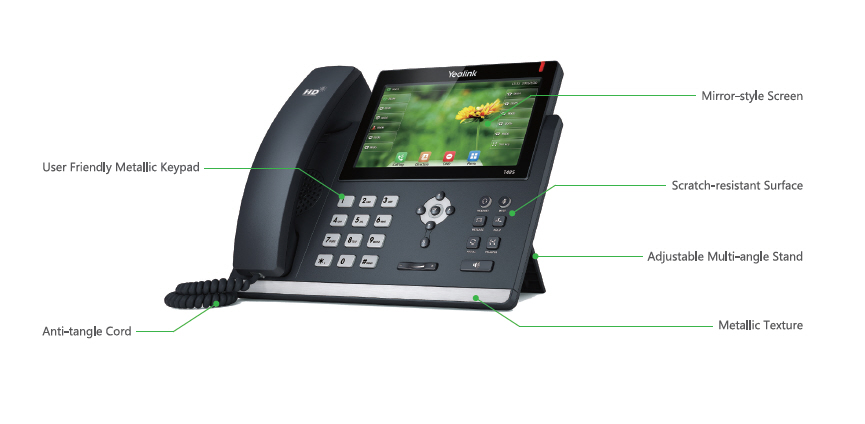Introduction
In today’s fast-paced business landscape, communication is a cornerstone of success. For small businesses, the right tools can make all the difference. Enter VoIP phone systems—the modern solution that promises enhanced functionality, cost-effectiveness, and flexibility. But with so many options available, how does one choose the best VoIP phone system tailored to their specific needs? This comprehensive guide aims to navigate you through the intricate world of VoIP systems, ensuring you make an informed decision that aligns with your business goals.
What is a VoIP Phone System?
A VoIP phone system, or Voice over Internet Protocol, allows users to make calls using the internet rather than traditional telephone lines. This shift not only reduces costs but also enhances features such as voicemail-to-email, call forwarding, and video conferencing capabilities.
Why Choose a VoIP Phone System for Your Small Business?
The advantages of adopting a VoIP phone system are manifold:
- Cost Savings: Traditional landlines can be expensive due to installation and maintenance charges. VoIP often eliminates these costs. Scalability: Growing companies can easily add or remove lines without significant fees or infrastructural changes. Advanced Features: Many VoIP providers offer advanced features included in their packages that would otherwise incur additional costs with traditional systems.
Understanding Your Business Needs
Before diving into potential providers and systems, it’s crucial to assess your business's unique requirements.
Identify Key Features Required
- Call Volume: How many calls do you handle daily? Remote Work Capabilities: Do employees work remotely? Integration with Other Tools: Does your team rely on CRM software or other tools?
Assess Your Budget
Establishing a clear budget will help narrow down choices effectively. Consider both initial setup costs and ongoing monthly expenses.
Types of VoIP Phone Systems
There are primarily two types of VoIP systems available:
1. Hosted VoIP Solutions
With a hosted solution, the service provider manages everything from hardware to software on their servers.
Pros:
- Minimal upfront investment Managed services reduce IT workload
Cons:
- Limited customization options Dependent on provider for uptime
2. On-Premises VoIP Solutions
This involves purchasing and managing your own hardware and software.
Pros:
- Greater control over customization More secure as data remains on-site
Cons:
- Higher upfront costs Requires dedicated IT resources for management
Key Features to Look For in a VoIP Phone System
When evaluating different VoIP phone systems for your small business, consider these essential features:
1. Call Quality and Reliability
High-definition voice quality is non-negotiable. Look for providers http://ricardovtwq971.lowescouponn.com/the-benefits-of-switching-to-a-voip-phone-system-a-comprehensive-guide that offer at least 99.9% uptime guarantees.
2. User-Friendly Interface
The interface should be intuitive and easy to navigate for all employees, regardless of their technical skills.
3. Customer Support Options
Responsive customer support is vital when issues arise—look for providers offering 24/7 support.
4. Mobile App Functionality
With remote work becoming increasingly common, ensure the system has robust mobile app capabilities for seamless communication on-the-go.
The Ultimate Guide to Choosing the Best VoIP Phone System for Your Small Business
As we venture deeper into selecting the best option for your small business, let's explore some critical factors that influence your decision-making process:
Analyzing Scalability Options in Your VoIP Phone System
Growing businesses need solutions that can evolve alongside them. When choosing your VoIP phone system, consider how easily you can add new users or features as your company expands.
Evaluating Pricing Structures
Understanding pricing models—whether per user or tiered packages—is crucial to budgeting effectively while maximizing value from your chosen provider.
| Cost Type | Description | |------------------|-----------------------------------------------------------| | Monthly Fee | Recurring cost per user or package | | Setup Fees | Initial costs associated with installing hardware | | Additional Costs | Charges for extra features like video conferencing |
Top Providers of VoIP Phone Systems
Here’s a look at some leading providers known for their exceptional services:
1. RingCentral
Renowned for its robust feature set including video conferencing and team messaging.
2. Nextiva
Offers excellent customer service along with an expansive range of integrations with popular tools like Salesforce.
Implementing Your New VoIP Phone System
Once you’ve selected a provider and signed up, it’s time to implement your new system effectively:

Preparing Your Infrastructure
Ensure that your internet connection meets minimum speed requirements; typically at least 1 Mbps upload/download per line is recommended.
Training Employees
Invest time in training sessions so that all staff members feel comfortable using new technology—consider engaging tutorials or webinars provided by your chosen vendor.
Common Challenges with VoIP Systems
While there are numerous benefits associated with switching to a VoIP phone system, several challenges may arise:
Network Dependency Issues
Because these systems rely heavily on internet connectivity, any disruptions can impact communication reliability severely.
Security Concerns
With sensitive data being transmitted over the internet, understanding cybersecurity measures becomes paramount when selecting a provider.
Frequently Asked Questions (FAQs)
What is the average cost of a VoIP phone system?- Typically ranges between $20-$50 per user per month depending on features selected.
- Yes! Most providers allow you to port over existing numbers without hassle.
- Not necessarily; many hosted services require minimal technical knowledge during setup.
- Most reputable providers boast high uptime percentages (99%+) ensuring reliability.
- Absolutely! Many providers offer mobile applications compatible with smartphones.
- Always read contracts thoroughly; inquire about any extra charges upfront before signing agreements.
Conclusion
Selecting the perfect VoIP phone system doesn't have to be an overwhelming task if approached methodically! By understanding your unique business needs first—and assessing various options based on scalability potential, pricing structures & key functionalities—you’ll undoubtedly find yourself equipped with an effective communication tool designed specifically around enhancing productivity within today’s competitive landscape!
In summary, "The Ultimate Guide to Choosing the Best VoIP Phone System for Your Small Business" serves as an indispensable resource empowering entrepreneurs like yourself toward making informed decisions benefiting growth trajectories long-term! Remember: investing wisely now means reaping rewards later!
This article was carefully crafted utilizing SEO principles while ensuring readability remains high throughout its entirety—the goal being clarity alongside rich informative content reflecting expertise across this domain!